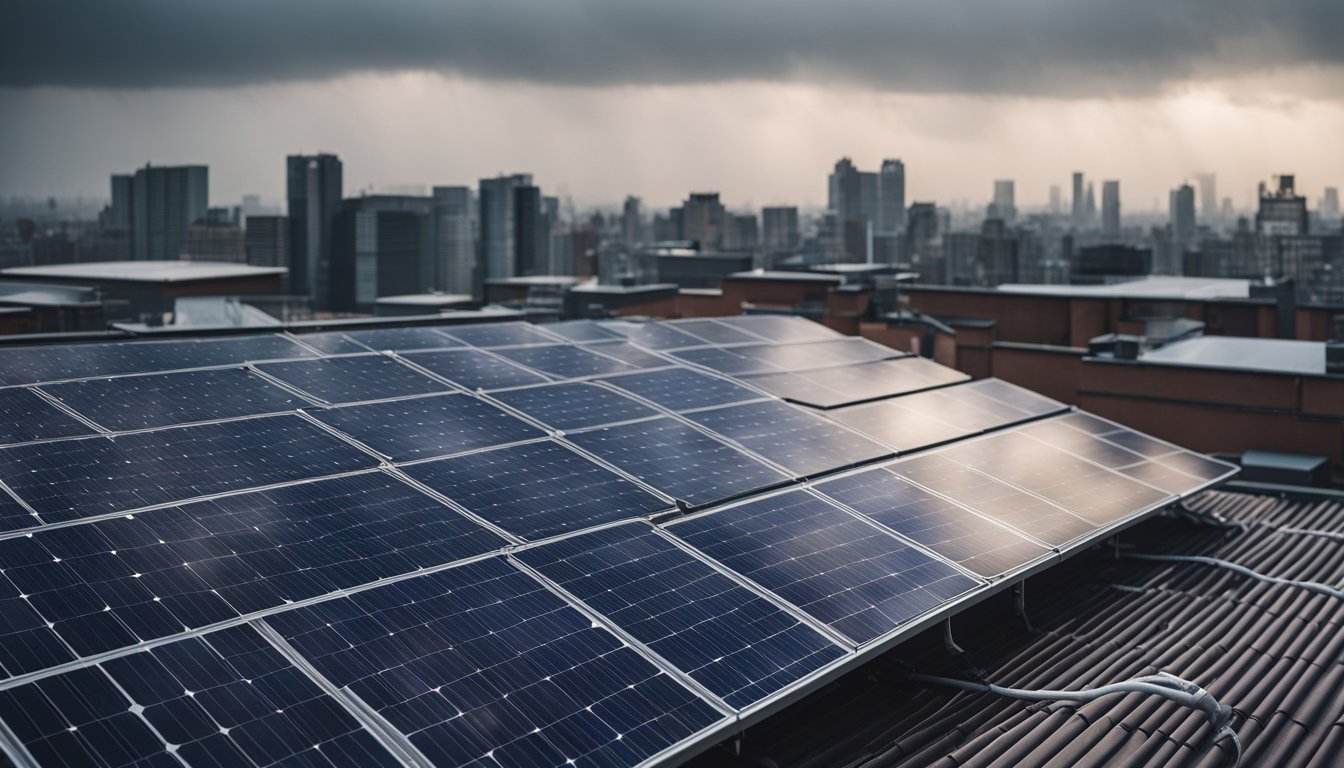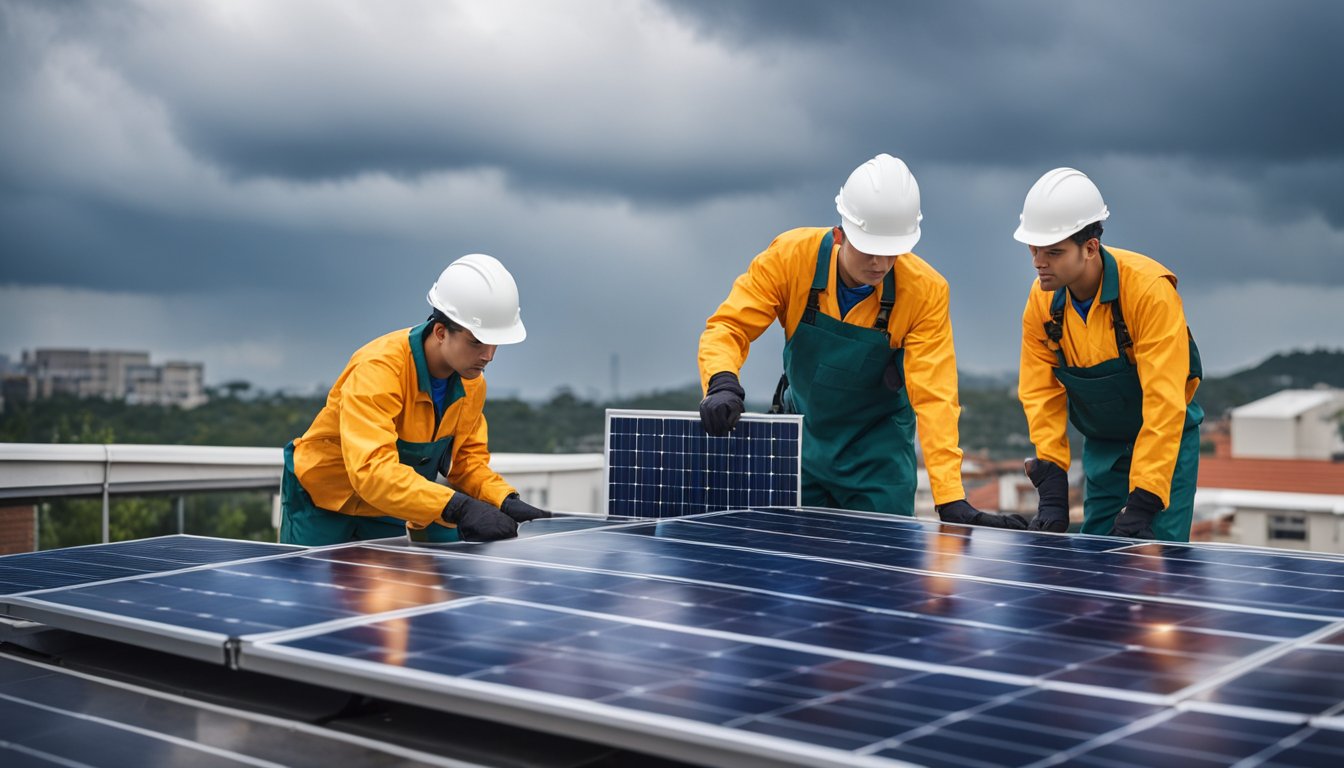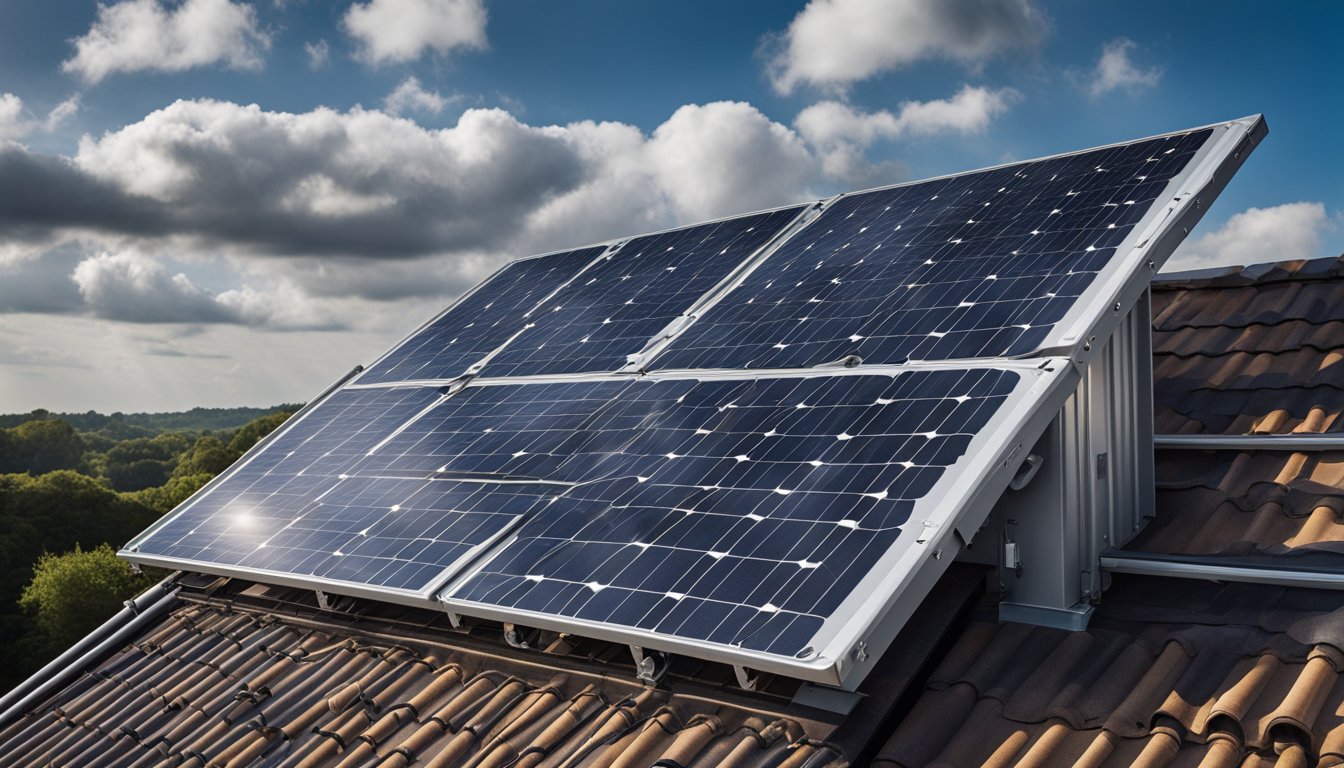Late updated: 16 Feb 2025 09:02
Written by: Eleanor Hartman
UK Weather Impact On Solar Panel Efficiency: A Comprehensive Analysis
In a time where renewable energy is more crucial than ever, the efficiency of solar panels—especially in places like the UK with its notorious weather—becomes a compelling topic. The UK's weather conditions do impact solar panel efficiency, with varying sunlight, cloud cover, and temperatures shaping energy output. While solar panels can operate efficiently in cold climates, the UK's shorter daylight hours during autumn and winter can significantly affect energy production.

We must consider that most solar panels are made of silicon, and their efficiency can dip when temperatures rise above 23°C. Despite this challenge, advancements in photovoltaic technology are paving the way for improvements. The impact of cloud cover presents another hurdle, but with innovative designs and materials, these effects are increasingly being mitigated.
To make the most of solar energy, understanding how these weather elements affect performance is essential. By exploring detailed maintenance strategies and optimising panel placement, we can enhance energy versatility, making solar a viable option year-round. Our exploration of these aspects reinforces solar's resilience and adaptability in various UK conditions.
Key Takeaways
- UK weather impacts solar panel efficiency especially during cloudy and shorter daylight periods.
- Temperature and cloud cover affect solar energy output and panel performance.
- Proper maintenance can improve panel efficiency despite environmental challenges.
Influence of Weather Conditions on Solar Panel Performance
Weather conditions in the UK can significantly impact solar panel performance. Temperature variations, precipitation types, and cloud cover all play critical roles in determining the amount of energy that solar panels can generate.
Impact of Temperature and Solar Irradiance
Temperature and solar irradiance are two major factors influencing solar panel efficiency. As temperatures climb, the operating efficiency tends to decline. This reduction occurs because solar panels are most efficient at around 25°C; beyond this, there is typically a drop in efficiency by 0.5% to 0.7% for every degree increase in temperature. Solar irradiance, or sunlight intensity, is crucial for energy production, especially during midday in spring, when performance is often optimal.
Effects of Rain, Snow, and Humidity
Rain and snow have mixed effects on solar panel performance. While heavy rain can temporarily hinder energy output, it also aids in dust removal, maintaining panel cleanliness and improving long-term performance. Snow coverage, although potentially obstructive, tends to be minimal in the UK and usually melts quickly, thus having a short-lived effect. However, high humidity can weaken solar intensity, impacting energy production and efficiency negatively over sustained periods.
Reduction of Efficiency Due to Cloud Cover and Shading
Cloud cover and shading considerably affect energy performance. Direct sunlight is reduced when clouds are present, leading to decreased solar intensity and reduced energy generation. In regions prone to frequent cloud cover, this can significantly impact annual energy output. Additionally, shading from nearby objects can obstruct sunlight, further reducing performance. It is vital to ensure optimal placement of panels to minimise these effects and maximise exposure to available sunlight.
Maintenance and Environmental Impacts

Regular maintenance and environmental factors significantly influence the efficiency of solar panels in the UK. Issues such as dust accumulation, air quality, and surface degradation must be addressed to maintain optimal energy performance.
The Role of Regular Maintenance
Routine maintenance is essential for ensuring the long-term efficiency of photovoltaic (PV) systems. Dirt and dust particles can accumulate on the surface of solar panels, decreasing their energy output. Our maintenance practices often involve regular cleaning and inspections to remove these deposits.
Neglecting maintenance tasks can lead to significant energy performance losses. Dust effect on solar photovoltaic panels necessitates careful management. We must understand that the accumulation of particles such as cement dust can have a negative impact. Regular upkeep can help in prolonging the lifespan of PV technology.
Air Quality and Particulate Deposits
Air quality plays a critical role in the operating efficiency of solar panels. In urban areas, the presence of nitrogen dioxide, PM 10, PM 2.5, and other pollutants can increase the deposition density on the panels. Monitoring these environmental parameters is crucial.
Sources of air pollutants like dirt and pollution contribute to the accumulation on the panel surfaces. Implementing air quality monitoring can help us understand the extent of particle sizes affecting PV cells. Effective strategies in urban planning and pollution management are crucial for minimising the impact on solar energy systems.
Long-Term Surface Degradation and Efficiency Loss
Over time, solar panels are subject to surface degradation, affecting glass and spectral transmittance. This can lead to efficiency losses and reduced energy production. The physical properties of panel materials can deteriorate due to constant exposure to environmental factors.
Understanding the long-term impact of total suspended particles and dust accumulation on flat-plate collectors is vital. Degradation not only impacts photovoltaic cells but also solar thermal flat-plate collectors and solar thermal cells. Our focus should be on assessing durable materials that resist degradation to safeguard the energy performance of PV systems.
Frequently Asked Questions

Our focus is on how various weather conditions in the UK, such as snow and cloud cover, influence solar panel efficiency. We also explore seasonal impacts and the sufficiency of solar power in the less sunny months. Additionally, the optimal conditions for solar energy generation in British weather and the effect of temperature variations are examined.
What is the impact of snow on solar panel performance in the United Kingdom?
Snow can affect solar panel performance primarily by blocking sunlight. In areas where snow accumulation occurs, panels may temporarily lose efficiency until the snow melts or slides off. However, due to the UK's relatively mild winters, significant snowfall is uncommon and usually short-lived, minimising long-term impacts on solar power generation.
How do varying degrees of cloud cover in the UK influence solar power generation?
Cloud cover can reduce the amount of direct sunlight reaching solar panels, thereby decreasing efficiency. Even so, panels still generate electricity under diffuse light conditions. Frequent overcast skies in the UK mean solar systems are often designed to optimise performance under both direct and indirect sunlight.
To what extent do seasonal changes in the UK affect solar panel efficiency?
Seasonal changes in the UK lead to variations in daylight hours and sunlight intensity. During autumn and winter, shorter days and lower sun angles result in reduced solar energy capture. However, spring and summer see increased efficiency due to longer daylight hours and higher solar irradiance.
Can solar panels in the UK generate enough energy during the less sunny months?
Even in less sunny periods, solar panels in the UK can provide a significant amount of energy. While output is lower compared to sunnier months, the technology is capable of meeting a portion of energy needs. Efficient energy use and storage solutions can help mitigate the effects of reduced sunlight.
What are the optimal conditions for solar panel efficiency in British weather?
Solar panels operate most efficiently in clear, sunny, and cool conditions. Moderate temperatures and full sunlight exposure without shade ensure maximal energy conversion. The British climate may not always offer these conditions, but solar panels can still perform well in cooler temperatures and diffuse light.
How do solar panels perform during typical UK temperature ranges throughout the year?
Solar panels often perform better in cooler temperatures. High ambient temperatures can decrease efficiency due to increased resistance in the solar cells. The UK's moderate climate is advantageous in maintaining good performance year-round, with panels functioning efficiently within the typical temperature ranges experienced across seasons.